- Home
- Middle East
- Israel-Iran Conflict: Latest Developments
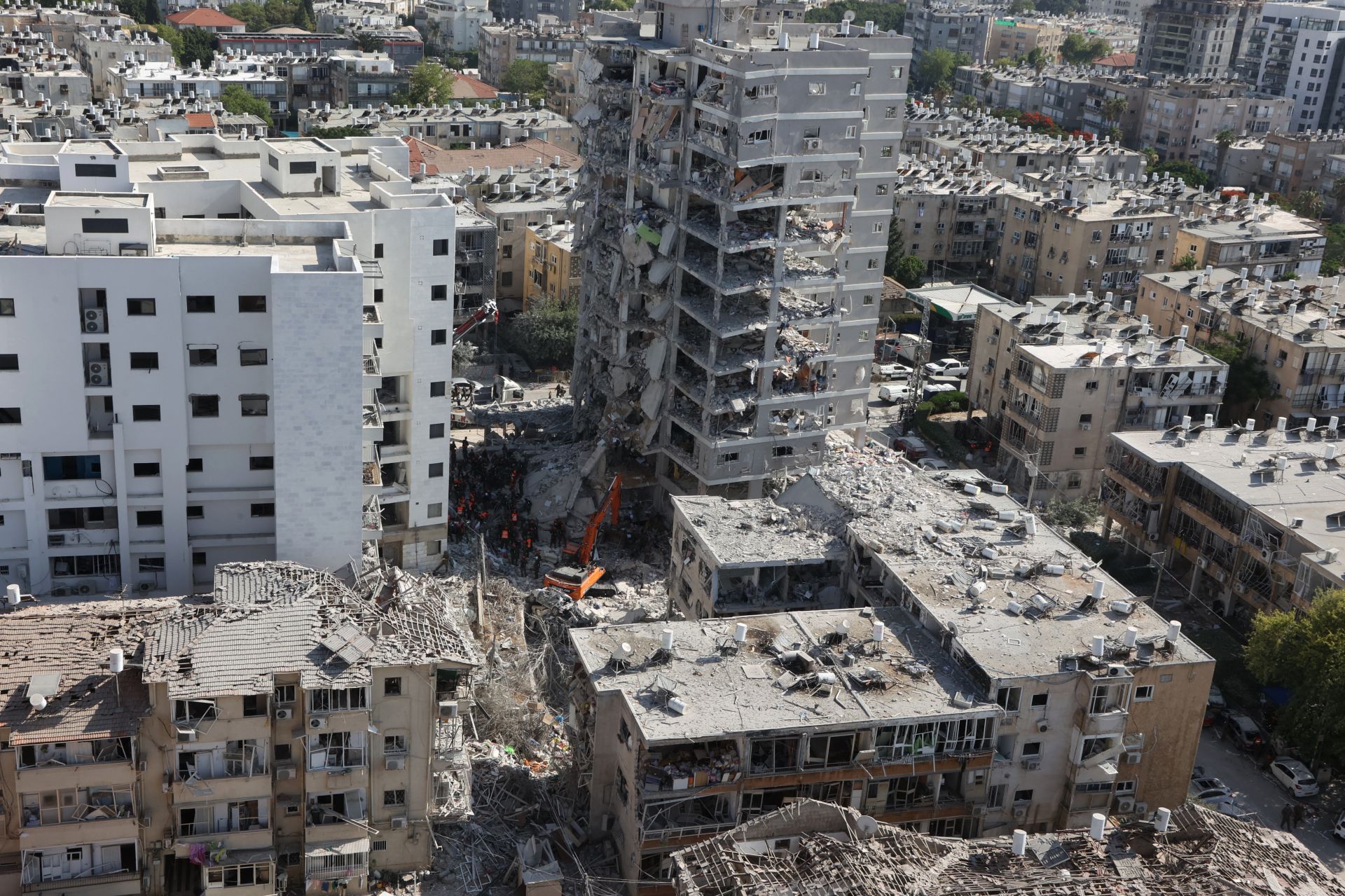
Israeli rescuers search through the rubble at the site of an overnight Iranian missile strike in Bat Yam on June 15, 2025. Israeli Prime Minister Benjamin Netanyahu said that Iran would pay "a very heavy price" for killing Israeli civilians, during a June 15 visit to the site of a missile strike on a residential building near Tel Aviv, as the two foes kept up intense fighting. ©Gil Cohen-Magen / AFP
Israel and Iran traded heavy fire for a third straight day on Sunday, with mounting casualties and expanding targets marking a sharp escalation in hostilities between the longtime foes.
Strikes in both countries persisted throughout the day, as the death toll rose following Israel's large-scale attacks on Friday aimed at crippling Iran's nuclear and military infrastructure, sparking retaliation.
The intensity of the exchanges between the two adversaries has reached new heights, fueling concerns of a drawn-out conflict that could engulf the Middle East, even as world leaders call for restraint and a halt to the violence.
Here are the latest developments:
Rising Death Tolls
Death tolls mounted on both sides, with heavy fire also hitting residential areas.
Iran unleashed multiple waves of missiles at Israel from late Saturday throughout Sunday, killing 10 people, including children, and bringing the overall death toll since Tehran launched retaliatory strikes to 13, with 380 others wounded.
Israeli Prime Minister Benjamin Netanyahu vowed to make Iran pay "a very heavy price" for the civilian deaths.
Sirens sounded again in multiple areas of Israel on Sunday afternoon after Iran launched a new barrage, though Israelis were told soon after it was safe to leave shelters.
Israeli attacks on Iran killed at least 128 people from Friday to Saturday, including children, Iranian media reported, citing the health ministry, with hundreds more wounded.
With no end of the fighting in sight, Iran opened mosques, metro stations and schools as shelters for citizens from Israeli attacks, as the Israeli military warned Iranians to leave areas near weapons facilities.
Expanding Targets
The Israeli military said Sunday its forces struck more than 80 targets in Tehran overnight, as its attacks expanded from Iranian military and nuclear facilities, as well as killing top commanders and scientists, to also hit oil infrastructure and government buildings.
The Israeli army announced that it had targeted an Iranian refueling plane at Mashhad Airport in eastern Iran. Israeli media confirmed the strike, reporting that a military cargo plane was the target. According to Al-Hadath, the attack specifically hit Hashemi Nejad Airport in Mashhad, marking another escalation in Israel’s strikes on Iranian military infrastructure.
Israeli strikes hit two fuel depots in Tehran on Sunday.
The day before, Israel's military said it was attacking dozens of missile launchers in Iran after announcing it had targeted air defenses with a wave of strikes in the Tehran area.
Iranian media on Sunday reported Israeli strikes had targeted the police headquarters and the defense ministry headquarters in Tehran as well as a facility affiliated with the ministry in the central city of Isfahan.
Iran struck sites used by Israeli warplanes for refueling, according to the Revolutionary Guards.
Israel said it had intercepted seven drones launched towards its territory, as it also faced attack from Yemen's Iran-backed Huthi rebels, who on Sunday said they launched several missiles at Israel.
Faltering Nuclear Diplomacy
The fierce exchanges of fire came amid talks between Tehran and Washington seeking to reach a deal on Iran's nuclear program.
Western governments have repeatedly accused Iran of seeking a nuclear weapon, which it denies.
The sixth round of negotiations set for Sunday in Oman has been called off, with Tehran saying it would not attend talks with Washington as long as Israel kept up its attacks.
Iranian Foreign Minister Abbas Araghchi on Sunday hit out at Israel, saying its attacks are an "attempt to undermine diplomacy and derail negotiations."
Araghchi also accused Israel of having "crossed a new red line" by targeting Iran's nuclear sites.
Tehran has accused the UN nuclear watchdog of inaction over the Israeli strikes and pledged to limit cooperation with the agency.
International Unease
Countries have voiced growing alarm over the conflict spilling into the wider region, calling for de-escalation.
Araghchi on Sunday slammed one of Israel's strikes on a major gas facility along the Gulf Coast, saying any military activity in the key waters "could involve the entire region, and possibly the whole world."
He said Tehran had "solid proof" that US forces and bases in the region had supported Israel in its attacks.
Washington, a top Israel ally and Tehran rival, has denied involvement and called for an end to the exchanges of fire, with President Donald Trump on Sunday reiterating a call for the two sides to "make a deal."
Earlier in the day, Trump had issued a warning to Iran, saying it would experience "the full strength" of the US military if it attacked the United States.
AFP
Read more
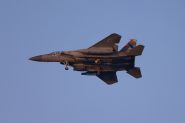
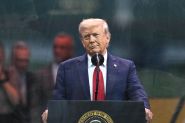
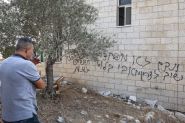
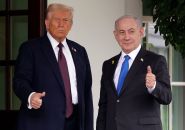

Comments